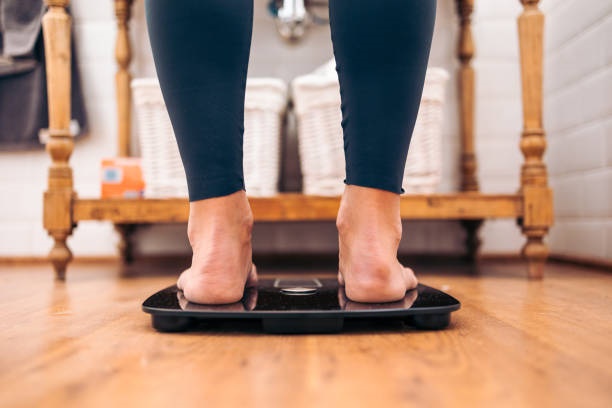Obesity Can Triple the Risk of Heart Failure in Women, Study Says

When it comes to your heart, being obese is a real killer. Researchers have known for years that obesity raises the risk of heart failure for men (11 percent) and women (14 percent), but a new study shows that for some women, being obese can double — or triple — the risk of heart failure.
What Causes Heart Failure
Heart failure occurs when the heart weakens to the point that it can longer pump enough nutrient-rich, oxygenated blood to meet the body’s needs. Cells and organs deprived oxygen and nutrients don’t function properly, causing fatigue, coughing, shortness of breath and a difficulty performing daily activities.
Heart failure is a fairly common condition. About six million Americans have it and more than 870,000 people are diagnosed with it every year, according to Cleveland Clinic. Having one or more cardiometabolic issues can increase the risk for developing heart failure, as can lifestyle behaviors such as:
- Smoking
- Eating high-fat, high-sodium foods
- Being sedentary
- Drinking excessively
How is Menopause Related to Heart Health?
Menopausal history also is a risk factor. Two hormones that protect women’s heart health -- estrogen and progesterone – wane after menopause. These hormones help maintain healthy blood flow, blood pressure and blood fats. This why women who go through premature (before age 40) or early (before 45) menopause have an increased risk of heart disease that could potentially lead to heart failure.
“Diminishing hormone levels can raise your risk for heart disease, but lifestyle is just as important,” says He emphasizes, medical director, MDVIP. “By the time a woman hits menopause, many poor lifestyle choices such as smoking, living a sedentary lifestyle, eating an unhealthy diet, not controlling stress and weight begin to take a toll, on your cardiovascular system.”
And while all the components of a healthy lifestyle are important, obesity and high heart rate have been getting attention lately. Researchers recently found that women who experience menopause at 55 or older have a much higher risk for heart failure if they’re obese, according to a study published in the Journal of the American Heart Association.
Postmenopausal ARIC Study
Researchers analyzed data on 4,500 postmenopausal women enrolled in the Atherosclerosis Risk Communities (ARIC) study – a project that ran between 1987 and 2019. It measured associations between known and suspected health risks for heart disease and the development of heart disease among adults in four diverse communities -- Forsyth County, NC, Jackson, MS, suburbs of Michigan and Washington County, MD.
Methods
Participants were divided into one of four groups based on the age the women entered menopause, i.e., before age 45, between 45 and 49, between 50 and 54 and 55 and older. Researchers followed up with participants six times – on average every 16.5 years -- during the study to collect baseline measurements and assessments. On a typical follow up, researchers would find about 900 women had developed heart failure, resulting in hospitalization and/or death.
Follow-up
On the fourth follow up, researchers documented women’s menopausal age, weight, body mass index (BMI) and waist circumference, which was noted if it was 35 inches or higher. At that point, women were classified by body mass, i.e., normal weight, overweight and obese. After the sixth follow up, researchers adjusted the data for heart-health variables such as type 1 or 2 diabetes, high blood pressure, kidney disease, inflammation, left ventricle wall thickening and a prior heart attack.
Results
Results showed a significant correlation between menopausal age, BMI, waist circumference and heart failure risk.
- For every six-point increase in BMI, the risk for heart failure increased 39 percent for the women menopause before 45 years old group, 33 percent for the 45 to 49 age group and 100 percent (doubled) for the 55 and over group. No increased risk was found in women ages 50 to 54.
- For every six-inch increase in waist circumference, the risk for heart failure increased 200 percent (tripled) among the 55 and older group. No increased risk among the remaining age groups.
“The results were a little surprising. I would have guessed that women who experience premature and early menopause had the greatest risk for heart failure, not obese women with late menopause,” says Kaminetsky. “This means poor weight management causes more damage to a woman’s cardiovascular system than previously thought.”
Managing Weight After Menopause
Let’s not mince words: Managing a healthy weight after menopause is not easy. The same two hormones that protect your heart – estrogen and progesterone -- also make it easier to manage weight. But after menopause, the ovaries produce very little of these hormones. Most women experience some weight gain. And pounds tend to settle in the midsection, as opposed to hips and thighs. This can change the shape of your body from a pear to an apple, raising your risk for heart disease even higher. The good news is weight loss may be tough, but it’s not impossible, particularly if you try these four tactics.
- Get between seven and eight hours of sleep every night. Studies suggest a lack of sleep can increase appetite, cause junk food cravings, disrupt metabolism, interfere with circadian rhythms and put you off of exercise – all variables that can lead to weight gain. If you’re struggling to get enough sleep, try these tips. Still no luck? Talk to your primary care doctor.
- Manage Stress. Stress is known for causing a long list of health problems including weight gain. Here are a few ways to manage your stress. Again, if these tips don’t work for you, talk to your primary care doctor. Chronic stress can evolve into anxiety and/or depression, both of which can raise your risk for heart issues.
- Exercise regularly. The American College of Sports Medicine recommends working out 150 minutes per week. Your workouts should include activities to improve muscular strength, endurance and power, cardiovascular endurance, flexibility, balance, coordination, agility and body composition. If you’re working out but not losing weight, there may be an imbalance in the fitness components. You may be doing too much cardio and not enough strength training. Or maybe your intensity is off – easy workouts won’t burn many calories, while overly powerful workouts that lack a sufficient recovery time can cause too much stress on the body. Or it could be that you’re eating more calories than you should. If you’re exercise routine seems to be working well but you would like to burn belly fat, adding some Tai Chi or QuiGong to your weekly routine might help, according to a study published in the Annals of Internal Medicine. Talk to your primary care doctor before beginning or changing a workout or have questions, talk to your primary care physician.
- Eating a healthy diet. Whole grains, lean protein, fruits and vegetables should be a staple in everyone’s diet. But once you hit menopause, another dietary goal should be to feel fuller longer and suppress your appetite. You can do this by eating a little more protein, fiber and greens, as well as staying hydrated and avoiding sugar. Be sure to talk to your primary care doctor before making any changes to your diet.
“If you are living a healthy lifestyle and still can’t lose weight, talk to your primary care doctor,” Kaminetsky says. “An underlying condition such as hypothyroidism, type 2 diabetes, Cushing syndrome or depression may be impacting your efforts.”
If you don’t have a primary care doctor, consider partnering with an MDVIP-affiliated physician. They have time to really work with you and develop a wellness plan that can better address your physical and mental health. Find a physician near you and begin your partnership in health »





